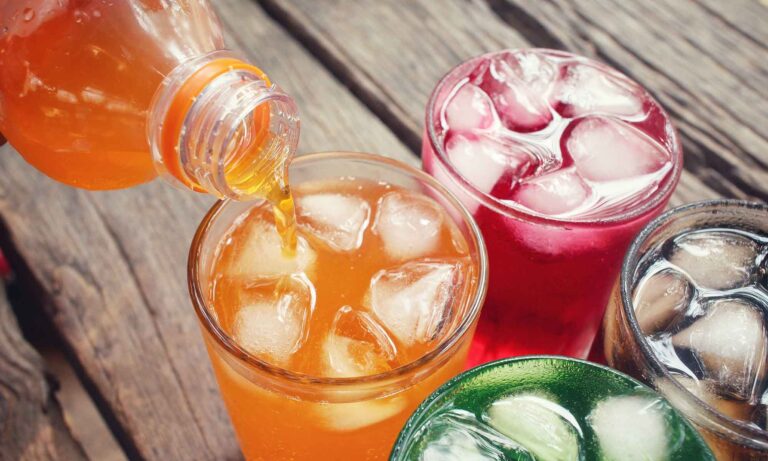
SOFT DRINKS AND THEIR EFFECTS ON YOUR ORAL HEALTH
Consumption
The consumption of soft drinks, also known in some countries as sodas, apart from their refreshing side, carry some risks.
Over the years, the consumption of artificial juices and sodas has become normalized in the Western world.
Soft drinks are beverages whose components include carbonated water [water containing carbonic acid], sweeteners such as sucrose, acidulants, and artificial flavors.
The carbonated water in soft drinks is a mixture of water and carbon dioxide, a practice pioneered by John Matthews in 1832 in New York City.
Soft drinks pose a significant risk of erosion to your teeth, which can lead to the need for various dental treatments.


What are the effects of soda and acidic drinks on your tooth enamel?
The indiscriminate consumption of soft drinks and artificial beverages plays a fundamental role among the causes of the erosion of your teeth and dental hypersensitivity, due to their acidic Ph.
The enamel of your teeth is mostly composed of calcium mineral salts, which are susceptible to the action of acids in your mouth.
To be more specific, your teeth are susceptible to the acids present in your mouth, whether they come from your diet through these types of beverages.
Either they are acids produced by some bacteria that cause tooth decay.
The point is, an imbalance in your diet, or continued neglect in your oral hygiene habits as well as excessive consumption of soft drinks, can cause the action of saliva to be insufficient.
6 characteristics harmful to your teeth
Some tips on artificial beverages and soda:
- In each can (or bottle) of soft drink the amount of sugar is directly related to the amount of acids, they add so much [the equivalent of several sugar cubes] precisely to mask the taste of the acids that act as flavorings.
- The original Coca Cola and Diet Coke (a lower calorie cola) even contain phosphoric acid and have a pH of 2.08 and 2.25 respectively, i.e. the "acidity" level of the lemon.
- Some artificial juices have an acidity level close to that of soft drinks (some "apple" flavors are in this acidity category).
- Energy" drinks usually contain phosphoric acid and citric acid, in addition to a low pH, which gives them a demineralizing potential for the hard tissues of the tooth.
- Calcium chelation capacity. Which decreases its availability for remineralization of your teeth.
- The large amount of sugar in these beverages puts you at risk of cardiovascular disease, obesity and diabetes in the long run.

How erosive can soft drinks and acidic beverages be?
They can be very erosive, and this depends on three factors:
- Chemical factors. type of acid, pH of the acid, adherence to your teeth.
- Behavioral factors. Frequency of consumption of these drinks, frequency of consumption of vegetables and fruits. in addition to acidic drinks do you also have a high consumption of sugar in your diet?
- Biological factors. Saliva [flow, composition, availability], condition of the tooth structure of each of your teeth, dental biofilm.

Conclusions of our experts
No one imagines having to need dental implants [or any type of dental prosthesis] because of tooth loss.
But the path to losing it starts with every carelessness in your and your children's oral hygiene habits.
As well as imbalances in your diet and consumption of sugary drinks.
So among my dental health tips, before I say goodbye, I give you this one: be consistent in your oral care habits and consume soft drinks in moderation.


We are a team of Dentists Specialists in Tijuana, with a team committed to provide you with the best Dental treatment.
Closer to you
Gallery







